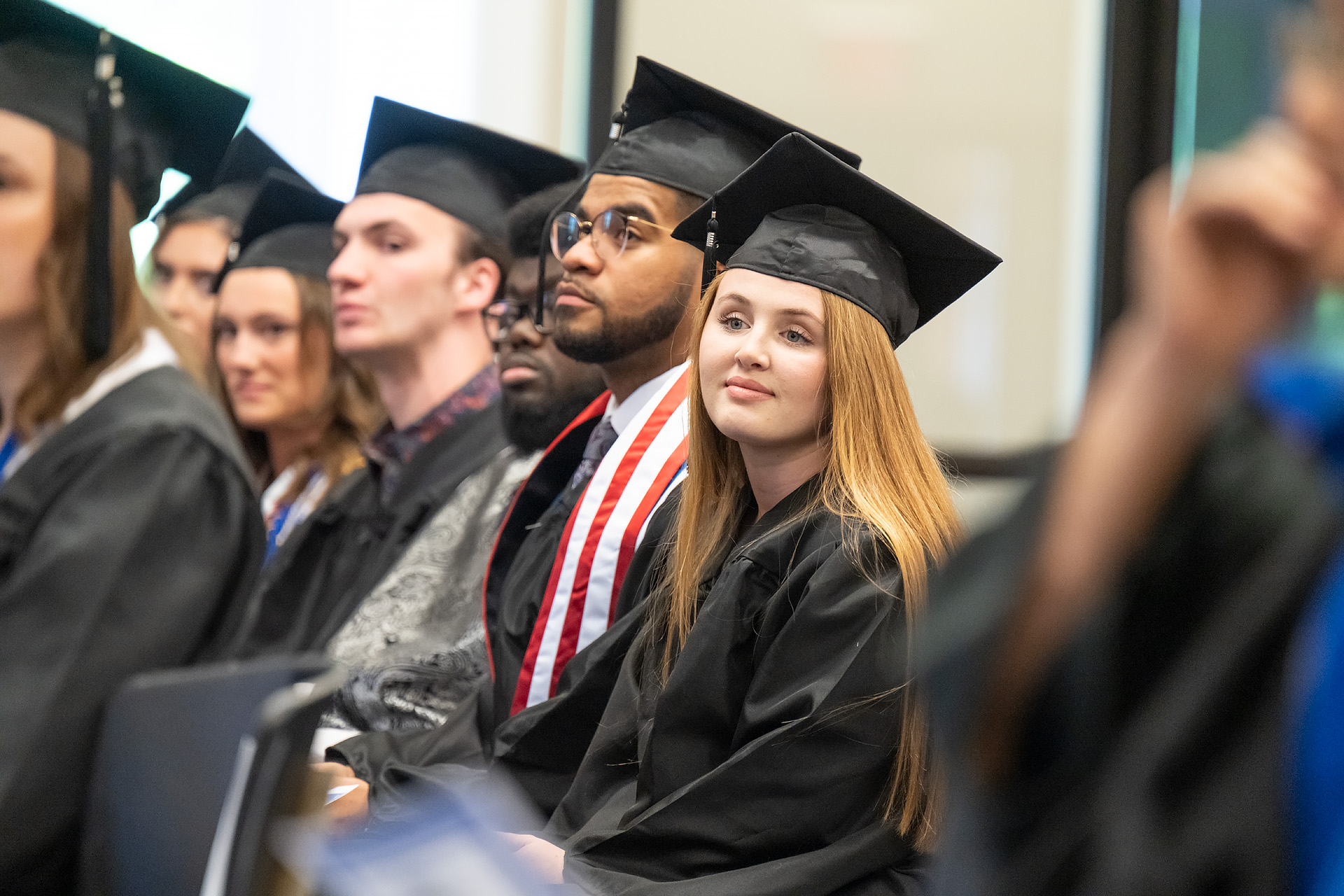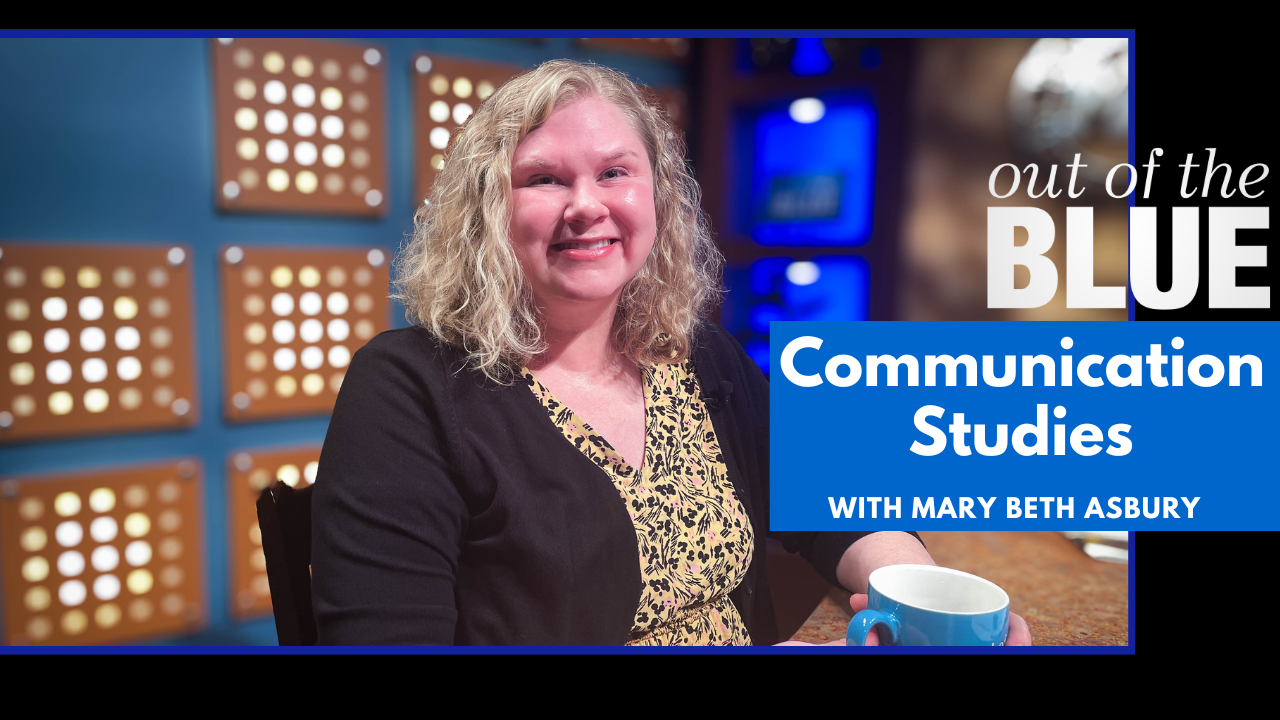
Communication
Study communication to develop critical thinking, hands-on skills, and global understanding for diverse career opportunities.
Communication, B.S./B.A.
The study of communication focuses on how people use messages to generate meanings within and across various contexts. The Communication discipline studies all forms, modes, media, and consequences of human communication, creating flexibility in career choices and opportunities for personal development.
Our students:
- develop critical thinking abilities to evaluate communication problems and find solutions
- engage in experiential learning in the community and build toward career goals with hands-on projects
- apply knowledge to conduct research with faculty in areas of interest
- create messages designed for specific audiences, contexts, and goals
- understand and navigate differences in our global society
News Briefs

August ‘Out of the Blue’ focuses on MTSU’s Department of Communication Studies [+VIDEO]
Professor and Department Chair Mary Beth Asbury stops by the "Out of the Blue" set to discuss communication studies and its role in students' lives.[ Read More ]
News Briefs

August ‘Out of the Blue’ focuses on MTSU’s Department of Communication Studies [+VIDEO]
Professor and Department Chair Mary Beth Asbury stops by the "Out of the Blue" set to discuss communication studies and its role in students' lives.[ Read More ]
Related Media

Communication, B.S./B.A.
Employer List
Alumni Success


Networking is a critical component for a career. Join professional networks and engage with people who can help you open doors to opportunity.
-CJ Kiekens, Class of '10, Deputy Director of Revenue at Chicago Park District
Take the time to reflect. We as a collective are always growing and changing. It’s important to keep a good sense of who you are and what you’re capable of. Any employer worth working for/with is going to want to know who you are as an individual. The best way to show someone who you are is by being your genuine and authentic self. I’m a big believer in how we may only discover our genuine & authentic selves through reflection. So, take time, think, reflect, do some journaling if that’s your thing. The most important person who has to know who you are first, before anyone else truly can, is you!
- Tony Chioccio, Class of '21
Although class group projects can be frustrating sometimes, they actually do a really good job preparing you to deal with coworkers. So, you should still try your best to make it a good project and work well with your teammates!
-Rebekah Witemeyer, Class of '23, Student Services Specialist at Nashville State Community College
Internship Opportunities
Internships are optional, however, they are a great opportunity for students to gain experience, gain course credit, and potentially earn money! We partner with several employers in the Middle Tennessee area, offering paid and unpaid internships in the spring, summer, and fall semesters. Some of our partners include Schneider Electric, Sisters Maid to Clean, Project Transformation, the Tennessee Small Business Development Center, Youth Empowerment through Arts & Humanities (YEAH!), PixelFlex, First Priority of America, Exchange Media Group, THEC, Volunteer Tennessee, Greenhouse Ministries, Legal Aid of Middle Tennessee, Kickstarter, Dollar General, Tractor Supply Co, Tennessee Department of the Treasury, the Tennessee Justice Center, the Country Music Hall of Fame, United Way, Nashville Industry Fund, Rolling Hills Community Church, the SPCA, Lee Company, the Margaret H. Ordoubadian University Writing Center, as well as an internship with the Department of Communication Studies.
If students want to stay up to date on internship offerings in our department, they can follow us on LinkedIn, MTSU Communication Studies Department, where internship opportunities are frequently posted. Students can earn 3 course credit hours through the COMM 4900 course when participating in an unpaid internship. If students have questions or interests in taking COMM 4900, please contact Dr. Deanne Priddis at dee.priddis@mtsu.edu. Additionally, students should speak with their academic advisor to see what will work best for them!
Helpful Links

MTSU’s Career Development Center
MTSU offers a comprehensive Career Development Center that serves students throughout the full student experience and beyond. They collaborate with faculty and staff to equip students with the tools to be marketable to the world of work and continuing education.
Students can schedule an appointment or check online resources and job boards at mtsu.edu/career.
Students can find current internship opportunities by talking to faculty and visiting the University job and internship board called Handshake.
Wondering what you can do with your major? Check out our What Can I Do with A Major In guides.



Student Clubs

CONTACT US


















